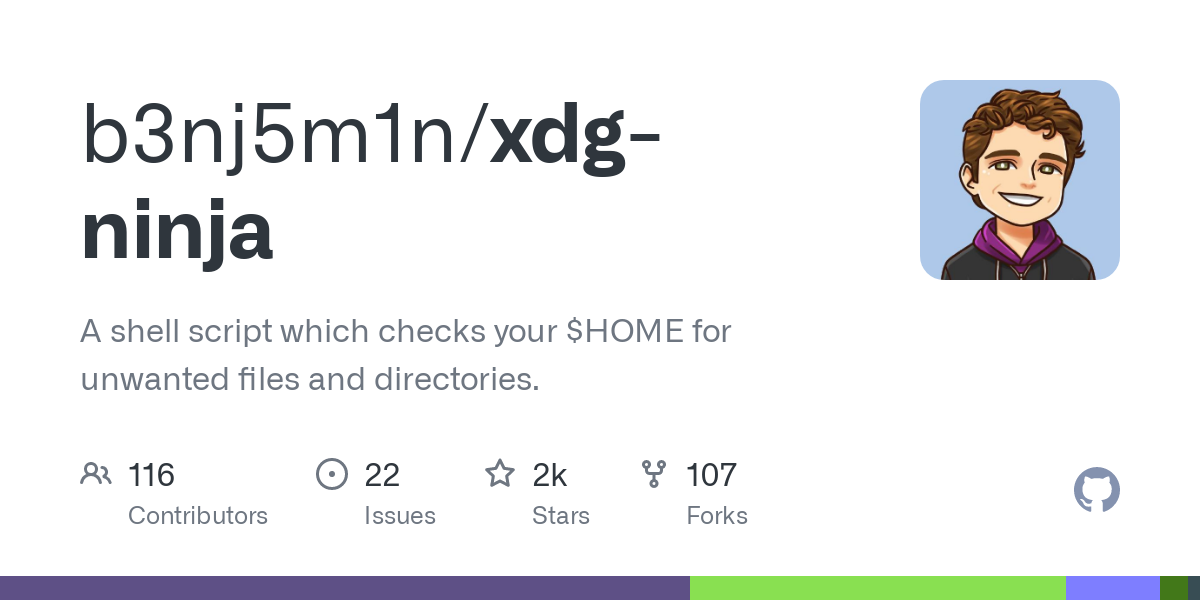xdg-ninja is a shell script that checks for unwanted files and directories in the user’s home directory and suggests moving them to an appropriate location. The script uses a configuration file that contains rules for identifying unwanted files and directories. The configurations are from the arch wiki page on XDG_BASE_DIR, antidot, and contributions from other users. The script can be run manually by cloning the repository and running the xdg-ninja.sh script or installed with Homebrew. Optional dependencies include glow for rendering Markdown in the terminal. The script is available on GitHub. The tool has been discussed on Reddit and Hacker News.



It talks about installing with nix package manager. I’ve never heard of this one. Can anyone comment on how well nix would work foru Ubuntu installations? It sounds like it installs some daemon, which I haven’t heard before from a package manager.
Can’t you just clone it and run the command?
I can. I just was more interested in learning about a new package manager, rather than the main topic of the post.
“if you don’t know what this does, run it and see what happens” seems like rather terrible advice to me.
Yes, but that wasn’t my advice.
Ofc I would not recommens this to a newbie; but I think Comment OP can inspect the script themselves (as it is right there on Github).
I have done so (git clone) with Gentoo and it works.
I have used Nix in Ubuntu before. It worked well enough. But as a concept NixOS makes more sense than just installing some of my packages with Nix.
Pretty sure Snap installs a daemon (the snap package is even called Snapd) which might be why you havent noticed it as a Ubuntu user (where Snapd is already installed)